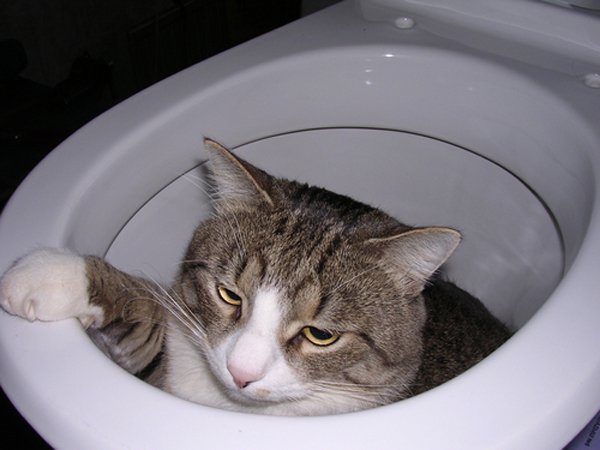Dangers of Disposing Cat Poop in Your Toilet - Precautionary Measures
Dangers of Disposing Cat Poop in Your Toilet - Precautionary Measures
Blog Article
Just about every person is bound to have their own piece of advice with regards to Don’t flush cat feces down the toilet.

Intro
As pet cat proprietors, it's important to be mindful of just how we get rid of our feline pals' waste. While it might seem convenient to flush pet cat poop down the toilet, this practice can have harmful consequences for both the environment and human health and wellness.
Environmental Impact
Flushing pet cat poop introduces dangerous virus and bloodsuckers right into the water, positioning a substantial risk to marine ecosystems. These impurities can adversely affect aquatic life and compromise water top quality.
Health and wellness Risks
Along with environmental problems, flushing pet cat waste can likewise present wellness risks to human beings. Pet cat feces might contain Toxoplasma gondii, a parasite that can cause toxoplasmosis-- a potentially severe ailment, especially for pregnant women and people with damaged body immune systems.
Alternatives to Flushing
Thankfully, there are more secure and much more accountable ways to take care of feline poop. Think about the adhering to alternatives:
1. Scoop and Dispose in Trash
The most usual approach of throwing away cat poop is to scoop it into a naturally degradable bag and toss it in the trash. Make sure to utilize a committed clutter inside story and deal with the waste promptly.
2. Use Biodegradable Litter
Go with biodegradable cat clutter made from products such as corn or wheat. These trashes are eco-friendly and can be securely taken care of in the trash.
3. Hide in the Yard
If you have a lawn, consider hiding pet cat waste in a designated location away from vegetable gardens and water sources. Make certain to dig deep enough to prevent contamination of groundwater.
4. Set Up a Pet Waste Disposal System
Invest in an animal waste disposal system particularly made for pet cat waste. These systems make use of enzymes to break down the waste, reducing smell and ecological influence.
Conclusion
Responsible animal ownership extends beyond giving food and sanctuary-- it additionally includes appropriate waste administration. By avoiding flushing feline poop down the bathroom and going with different disposal approaches, we can lessen our ecological footprint and safeguard human wellness.
Why You Should Never Flush Cat Poop Down the Toilet
A rose by any other name might smell as sweet, but not all poop is created equal. Toilets, and our sewage systems, are designed for human excrement, not animal waste. It might seem like it couldn’t hurt to toss cat feces into the loo, but it’s not a good idea to flush cat poop in the toilet.
First and foremost, assuming your cat uses a litter box, any waste is going to have litter on it. And even the smallest amount of litter can wreak havoc on plumbing.
Over time, small amounts build up, filling up your septic system. Most litter sold today is clumping; it is made from a type of clay that hardens when it gets wet. Ever tried to scrape old clumps from the bottom of a litter box? You know just how cement-hard it can get!
Now imagine just a small clump of that stuck in your pipes. A simple de-clogger like Drano isn’t going to cut it. And that means it’s going to cost you big time to fix it.
Parasitic Contamination
Believe it or not, your healthy kitty may be harboring a nasty parasite. Only cats excrete Toxoplasma in their feces. Yet it rarely causes serious health issues in the cats that are infected. Most people will be fine too if infected. Only pregnant women and people with compromised immune systems are at risk. (If you’ve ever heard how women who are expecting are excused from litter cleaning duty, Toxoplasma is why.)
But other animals may have a problem if infected with the parasite. And human water treatment systems aren’t designed to handle it. As a result, the systems don’t remove the parasite before discharging wastewater into local waterways. Fish, shellfish, and other marine life — otters in particular — are susceptible to toxoplasma. If exposed, most will end up with brain damage and many will die.
Depending on the species of fish, they may end up on someone’s fish hook and, ultimately on someone’s dinner plate. If that someone has a chronic illness, they’re at risk.
Skip the Toilet Training
We know there are folks out there who like to toilet train their cats. And we give them props, it takes a lot of work. But thanks to the toxoplasma, it’s not a good idea.

We are very focused on How to Dispose of Cat Poop and Litter Without Plastic Bags and I hope you enjoyed the article. Liked our write-up? Please share it. Help someone else check it out. Thanks for your time. Kindly visit our website back soon.
Book A Service Call Report this page